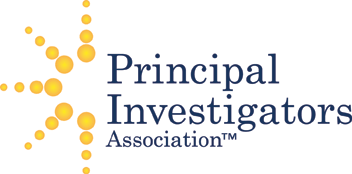Building a Better NSF Proposal: Summary Page, Intellectual Merit, and Broader Impact
60-Minute On-Demand Webinar. Available in CD, MP4 or PDF Transcript.
NSF has no hidden agendas
All NSF proposals are evaluated through use of the two National Science Board (NSB)-approved merit review criteria: intellectual merit and the broader impacts of the proposed effort.
Proposers are reminded that the one page Project Summary must explicitly address, in separate statements, both NSB-approved merit review criteria; the statements must contain the phrases “intellectual merit” and “broader impacts.”
Proposers can have difficulty understanding how to frame their goals and activities in the light of these criteria.
Beyond this base requirement, the summary page helps to get the reviewer on your side. The reviewer most often turns first to the project summary page. It should clearly and briefly communicate and set the stage for what is to come.
NSF has no hidden agendas; their review criteria are clear and addressing them, starting with the summary page, can enhance success. After the reviewer reads your summary page you will want them to think the project is worthwhile, realistic, well planned and innovative. No mean feat in one page!
Building a better NSF proposal:
- Don’t leave the project summary to the last moment
- Refuse the temptation to simply cut and paste sections from the narrative into the project summary
- Understand the criterion used to judge the broader impact of your proposal
- Determine what project activities can be used or suggested to establish the broader impact of your project
- Include under-represented groups in the impact
Take-Away Benefits:
|
Limited-Time Offer:
- - MP4 File with PDF Handouts- Price:
$197Only $129! - - CD-ROM with PDF Handouts — Price:
$197Only $129! - - PDF Transcript with Handouts — Price:
$197Only $129!
Featured Presenter: Michael LesieckiMichael has been the executive director of the Maricopa Advanced Technology Education Center (MATEC) since its inception in 1996. MATEC, a member of the Division of Academic Affairs of the Maricopa Community Colleges, is a National Science Foundation funded center of excellence that supports workforce education efforts in the fields of semiconductor manufacturing, automated manufacturing and electronics. Michael’s interests are focused at the interface between education and industry. He received his Ph.D. in physical chemistry from Oregon State University and has served as an associate research professor at the University of Utah, an associate professor of Chemical Physics at the University of Puerto Rico and as an adjunct faculty at Edison Community College. Michael has published 27 technical articles and has received one patent. In industry he acted has the director of the BioScience Division of Candela Laser Corporation and worked as a research scientist at Exxon. Michael has served as Principal Investigator on successful, major NSF proposals and serves as a reviewer for NSF and Department of Labor grant proposals. This On-demand presentation is brought to you as a training tool by the Principal Investigators Association, which is an independent organization. The presentation, tools presented and their contents are not connected with the National Science Foundation (NSF), nor are they endorsed by this agency. All views expressed are those personally held by the presenter and are not official government policies or opinions |




